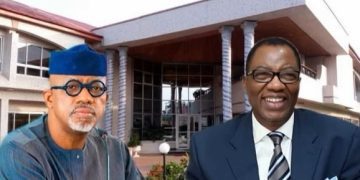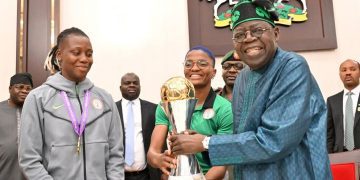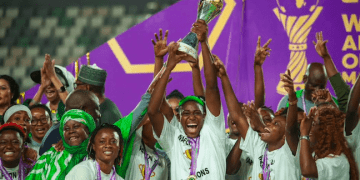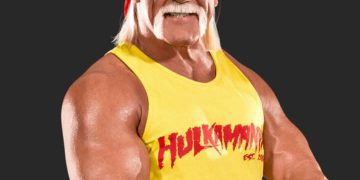El-Rufai was once known as a defender of his party and its leaders. He sang the praises of Obasanjo, then of Buhari. Today, he throws tantrums at Tinubu, calling his government “illiterate,” accusing it of bribing opposition politicians, and declaring the APC a party he “no longer recognises.” That he makes such statements barely two years after leaving office—without irony or introspection—is a sad testament to how quickly ambition can curdle into delusion
By Shamshudeen Abdulmumin
In the grand and often turbulent theatre of Nigerian politics, there strides a figure both familiar and infamous — whose silver tongue weaves intricate tapestries of audacity and artifice, crafting illusions so deftly entwined with half-truths that even the most discerning can be momentarily beguiled. This is the personage of Mallam Nasir Ahmad El-Rufai, erstwhile Governor of Kaduna State, once hailed as a visionary technocrat, now unmasked as a weary architect of revisionism, ensnared in the thickets of his own delusions, desperately clutching at the fraying strands of a relevance long slipping into oblivion.
El-Rufai’s latest outburst, in which he arrogantly claims authorship of all the projects recently inaugurated by President Bola Ahmed Tinubu during his triumphant visit to Kaduna, is not only false — it is a masterclass in self-deception and historical distortion. To suggest that the state-of-the-art Vocational Institutes, the fully equipped Bola Ahmed Tinubu Specialist Hospital, and the innovative Compressed Natural Gas (CNG) Buses initiative were either conceived or completed under his administration is a lie so bold, so brazen, and so contemptuous of documented fact, that it demands a rebuttal not just for record’s sake, but as an act of civic duty.
The truth is immutable: all three Vocational Institutes — the Abdulkadir Balarabe Musa Institute in Rigachikun, Col. Dangiwa Umar Institute in Soba, and Sir Patrick Ibrahim Yakowa Institute in Samaru Kataf — were fully conceived, funded, executed, and completed under the administration of Governor Uba Sani. These institutes are not cosmetic projects for ribbon-cutting ceremonies; they are strategic instruments of human capital development, designed to turn out 36,000 technically skilled youths annually. They stand today not merely as structures, but as functional institutions certified by the National Board for Technical Education (NBTE) as the best-equipped skills centres in Nigeria.
In fact, the NBTE’s Executive Secretary, Professor Idris Bugaje, publicly declared that no polytechnic or university in Nigeria rivals the equipment and setup of these institutes — a rare and glowing endorsement that El-Rufai never once received during his tenure, despite his penchant for self-applause.
Similarly, the much-acclaimed Bola Ahmed Tinubu Specialist Hospital, which President Tinubu himself described as a “model of modern healthcare infrastructure,” was only 53% completed—and completely unequipped—when Governor Uba Sani assumed office. It had become a metaphor for neglect, waste, and bureaucratic lethargy. Governor Uba Sani did not just complete it; he revitalised and transformed it. He equipped the hospital with cutting-edge medical technology and integrated it into his broader healthcare reform plan that includes the renovation of general hospitals across all senatorial zones.
As for the fleet of 100 CNG buses, this was a direct response by the Uba Sani administration to the fuel subsidy removal—a policy for which El-Rufai had no blueprint, no foresight, and certainly no provision. These buses now serve the masses with subsidized or free transportation, particularly benefiting students, civil servants, and retirees. Their conception and rollout required not only fiscal innovation but bold political will—both of which El-Rufai conspicuously lacked when he presided over Kaduna.
If Karl Marx was right that “shame is a revolutionary sentiment,” then El-Rufai may indeed be beyond redemption. For shame requires introspection; it demands humility. These are not traits El-Rufai has ever shown. But perhaps it is not too late. Perhaps he can still salvage dignity by stepping away from the podium of deceit and embracing the quiet redemption of truth
To attempt to lay claim to these legacy projects is not only fraudulent—it is grotesque. It is the intellectual equivalent of a man trying to steal the sunrise because he once owned a candle.
El-Rufai’s lies are not occasional lapses — they are habitual, pathological, and compulsive. As former President Olusegun Obasanjo emphatically noted in his memoir My Watch, El-Rufai is a “malicious liar” with “a penchant for unfair embellishment of stories,” someone who “lied brazenly…against his colleagues and so-called friends.” Obasanjo did not offer this assessment in bitterness or in passing; he detailed his disillusionment with El-Rufai with precision, painting a picture of a man driven not by conviction, but by ego; not by service, but by self-glorification.
The former president’s description is striking: El-Rufai, he wrote, suffers from “small man syndrome” and lacks the capacity for loyalty or integrity. Even his familial relationships, Obasanjo recounted, were marred by betrayal and character assassination. This is no ordinary indictment; it is a solemn warning from a man who once trusted El-Rufai with power and position.
And now, in the twilight of his political relevance, El-Rufai is once again deploying his signature weapons: sophistry, subterfuge, and calculated distortion. This time, his target is not merely Governor Sani, but by extension, the Tinubu administration, which he once pretended to support.
Let us not forget the Kaduna that El-Rufai left behind: a fractured society, riddled with ethno-religious suspicion and soaked in debt. He departed office bequeathing a horrifying $587 million in external debt, ₦85 billion in domestic debt, and ₦115 billion in contractual liabilities—a financial noose around the neck of the very state he now claims to have “developed.” Many of the contracts he awarded were paid for but never executed — ghost projects by ghost contractors, some of whom are now being pursued by anti-graft agencies.
More damning is the social cost of his tenure. His policies were polarising and vindictive. He pitted ethnic and religious communities against each other, weaponised governance for personal vendettas, and treated dissent like treason. The peace and progress now being enjoyed in Kaduna under Governor Uba Sani were hard-won, not inherited. He united what El-Rufai fragmented, empowered where El-Rufai disenfranchised, and built where El-Rufai only branded.
El-Rufai’s latest tantrums are born not of principle but of envy — pure and undiluted. He is bitter that his successor, Uba Sani, a man of calm disposition and developmental focus, is receiving national acclaim, including the prestigious Governor of the Year 2024 award, National Honours Award of Commander of the Order of Niger, CON (for his heroic efforts during the quest for democratic rule in the country); on the contrary, El Rufai’s legacy is increasingly regarded with suspicion, regret, and investigation.
This bitterness has morphed into a personal vendetta. He now appears to believe that bringing down Uba Sani is his only remaining political currency. His recent attempts to foment dissent through a faux “national coalition” of disgruntled power-hunters—many of whom were themselves expelled by the people via the ballot or by their own irrelevance—smacks of desperation.
El-Rufai was once known as a defender of his party and its leaders. He sang the praises of Obasanjo, then of Buhari. Today, he throws tantrums at Tinubu, calling his government “illiterate,” accusing it of bribing opposition politicians, and declaring the APC a party he “no longer recognises.” That he makes such statements barely two years after leaving office—without irony or introspection—is a sad testament to how quickly ambition can curdle into delusion.
El Rufa’i is deeply vexed by Governor Uba Sani’s principled support for President Tinubu. He once, very laughably described the very good working relationship Governor Uba Sani has with President Tinubu as transactional – That the President is ‘bribing’ Governor Uba Sani! In the past, the legendarily hypocritical El-Rufai defended then sitting Obasanjo to the hilt, even when it was politically costly. He was one of the loudest voices behind President Buhari, while he held sway at Aso Villa. No one accused El Rufa’i then of being “bribed” to be loyal. So why is Governor Uba Sani’s principled support for President Tinubu now interpreted by El-Rufai as transactional?
Perhaps because El-Rufai cannot comprehend genuine loyalty. He sees everything —alliances, friendships, even public service — through the prism of utility and self-interest. He has no concept of principled consistency because he has never practiced it. His only enduring loyalty is to himself.
The truth is this: Governor Sani supports President Tinubu because the President has earned it — through inclusive governance, respect for federalism, and sound economic policy. The synergy between Kaduna and the Federal Government is yielding real dividends: infrastructural development, fiscal reforms, and better revenue allocation. El-Rufai’s bitterness is the shrill cry of a man who expected political patronage and was instead met with polite indifference.
It is time for Mallam Nasir El-Rufai to take a long, unflinching look into the mirror. He is no longer the political wunderkind of Abuja nor the reformist Governor of lore. He is a man whose legacy is rapidly disintegrating under the weight of lies, debts, and division. His brand of politics — of suspicion, grandstanding, and intellectual bullying — has passed its expiry date.
If Karl Marx was right that “shame is a revolutionary sentiment,” then El-Rufai may indeed be beyond redemption. For shame requires introspection; it demands humility. These are not traits El-Rufai has ever shown. But perhaps it is not too late. Perhaps he can still salvage dignity by stepping away from the podium of deceit and embracing the quiet redemption of truth.
Until then, let no one be deceived. The accomplishments of Governor Uba Sani are his and his alone. They are not borrowed. They are not inherited. They are not stolen. And no amount of revisionism or social media cynicism can alter this fundamental reality.
In the final analysis, history will remember Kaduna’s renaissance as the product of Uba Sani’s vision, integrity, and steadfastness. El-Rufai’s name will linger only as a cautionary tale — a reminder of how ego and falsehoods can erode even the brightest political prospects.
Mallam El-Rufai should cease his divisive antics, embrace humility, and allow Kaduna — and indeed Nigeria — to move forward. The people deserve leaders who build, not destroy; who unify, not divide; who tell the truth, not lies. Grow up, Mallam. The era of deception is over.
•Abdulmumin resides in Barnawa, Kaduna.
•Opinions, positions or thoughts expressed here are personal and strictly of the writer/author and do not represent the views of The Daily Crucible.








































